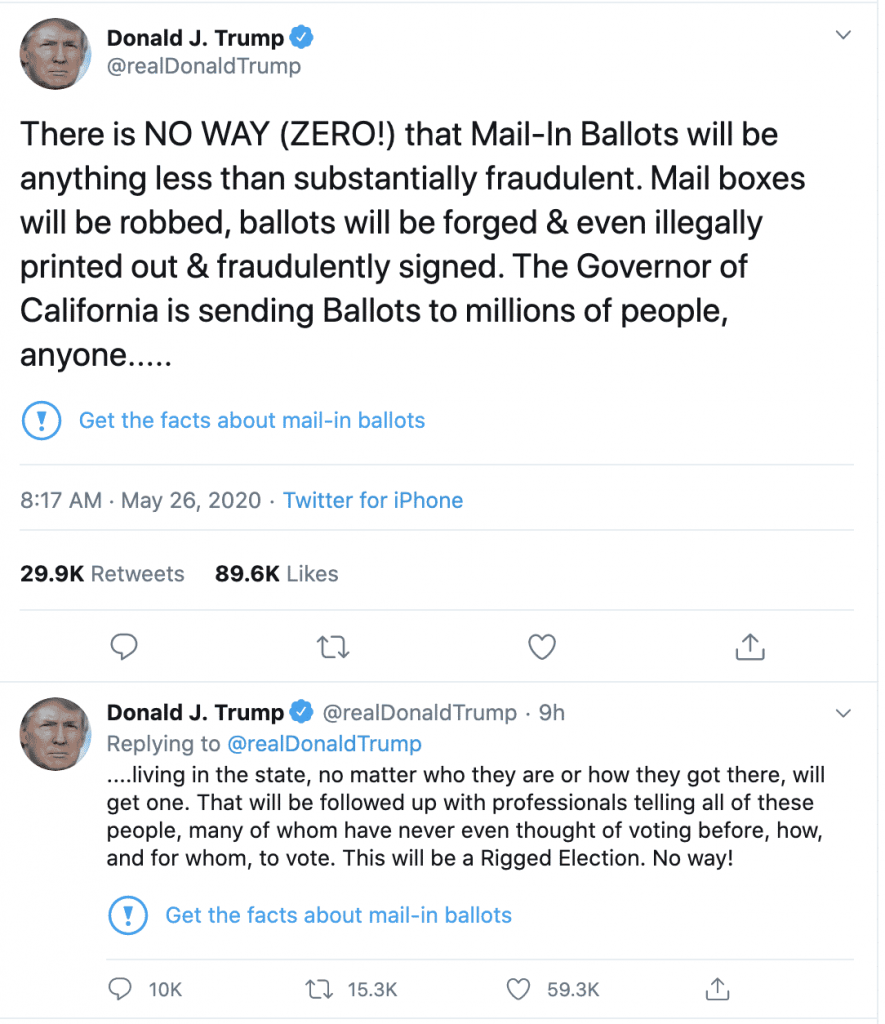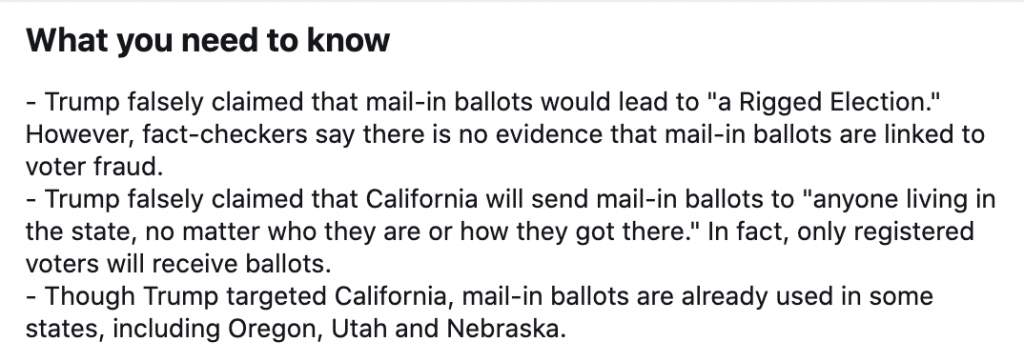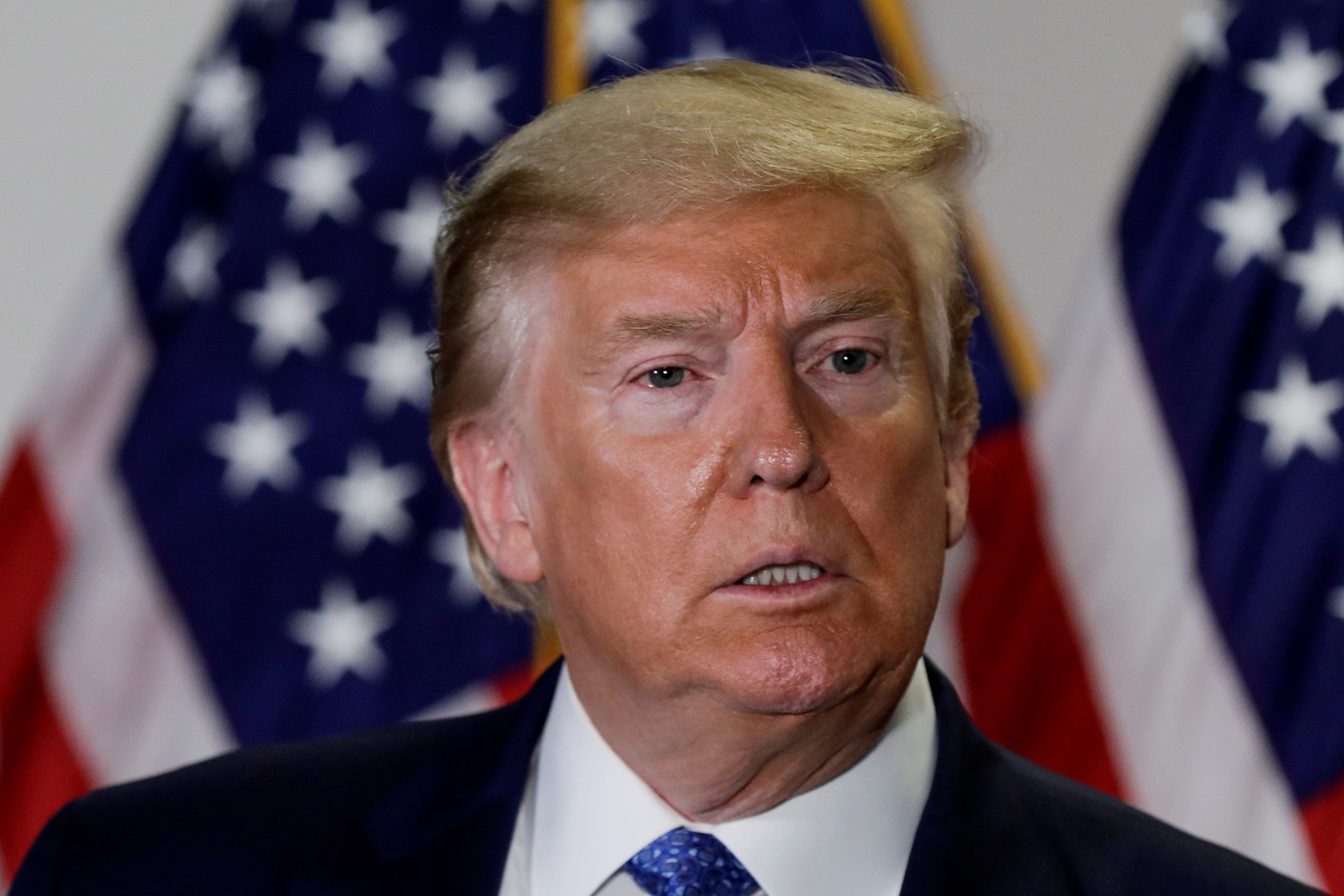Twitter is taking action to address what the company says is “potentially misleading information” in some of President Donald Trump’s tweets.
“There is NO WAY (ZERO!) that Mail-In Ballots will be anything less than substantially fraudulent,” Trump tweeted Tuesday morning.
He added, “Mail boxes will be robbed, ballots will be forged & even illegally printed out & fraudulently signed.”
….living in the state, no matter who they are or how they got there, will get one. That will be followed up with professionals telling all of these people, many of whom have never even thought of voting before, how, and for whom, to vote. This will be a Rigged Election. No way!
— Donald J. Trump (@realDonaldTrump) May 26, 2020
By Tuesday evening, Twitter had added a fact-checking feature to Trump’s tweet that read, “Get the facts about mail-in ballots” with a link that led user to a series of tweets and news stories with information about mail-in ballots.

The fact-checking feature also included a “What you need to know” section with background information about Trump’s tweets.

A spokesperson for Twitter told The Washington Post that the tweets “contain potentially misleading information about voting processes and have been labeled to provide additional context around mail-in ballots.”
Last week, Trump threatened to withhold funding to states if they expand access to mail-in ballots, as IJR reported.
“State of Nevada ‘thinks’ that they can send out illegal vote by mail ballots, creating a great Voter Fraud scenario for the State and the U.S.,” Trump tweeted on Wednesday.
He added, “They can’t! If they do, ‘I think’ I can hold up funds to the State. Sorry, but you must not cheat in elections.”
State of Nevada “thinks” that they can send out illegal vote by mail ballots, creating a great Voter Fraud scenario for the State and the U.S. They can’t! If they do, “I think” I can hold up funds to the State. Sorry, but you must not cheat in elections. @RussVought45 @USTreasury
— Donald J. Trump (@realDonaldTrump) May 20, 2020
While Trump claimed that mail-in ballots lead to fraud, several studies have found that incidents of voter fraud from absentee ballots are incredibly low.
Additionally, many states are looking to expand access to mail-in ballots ahead of the general election to allow voters to cast their ballot without risking exposure to the virus by waiting in lines at polling stations.

























 Continue with Google
Continue with Google